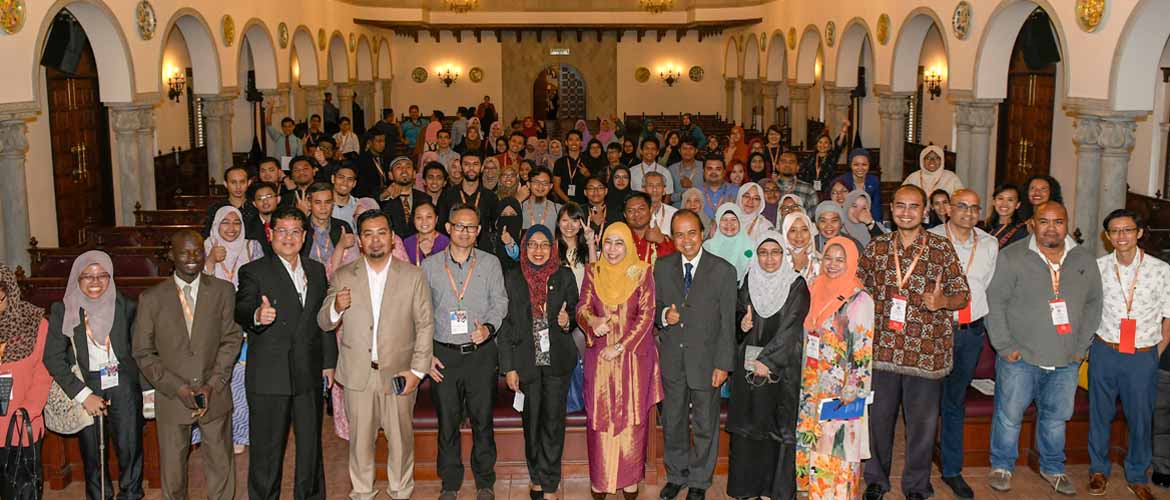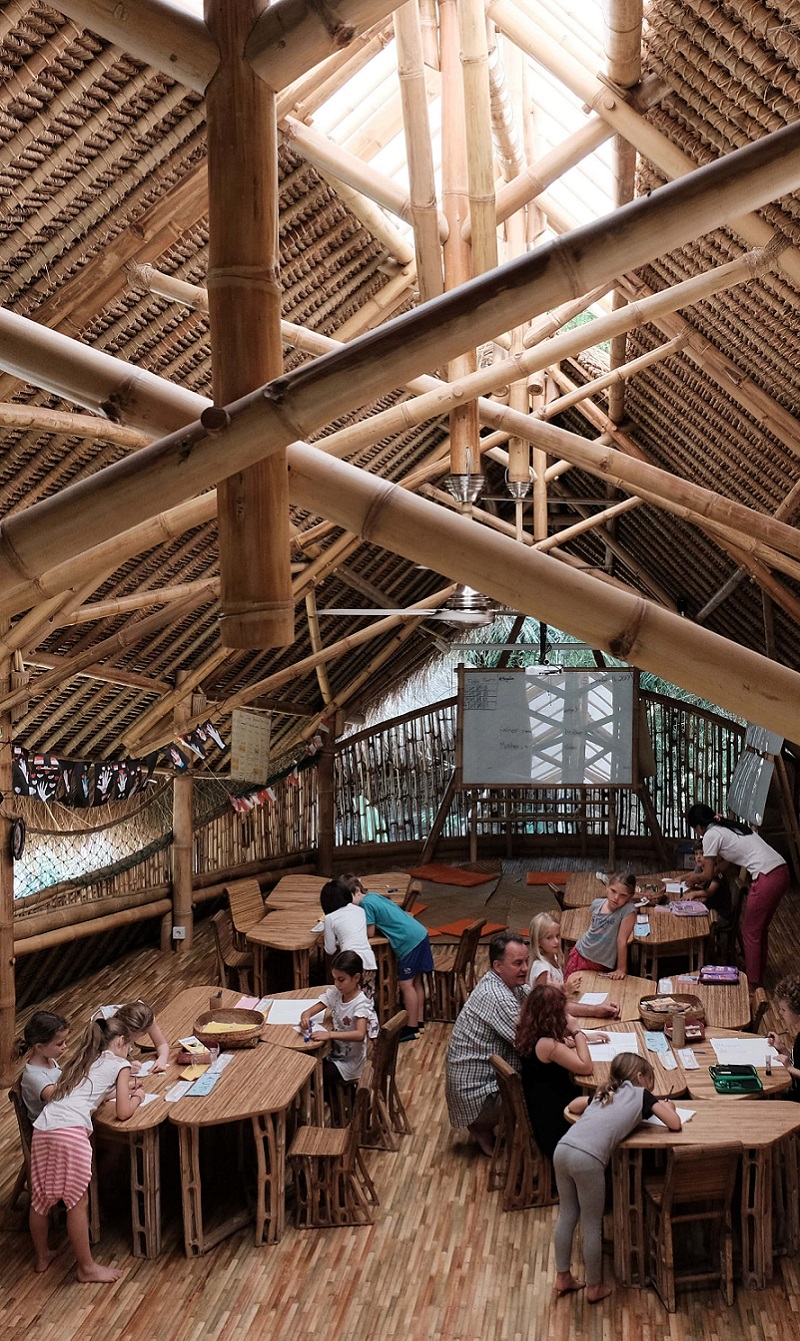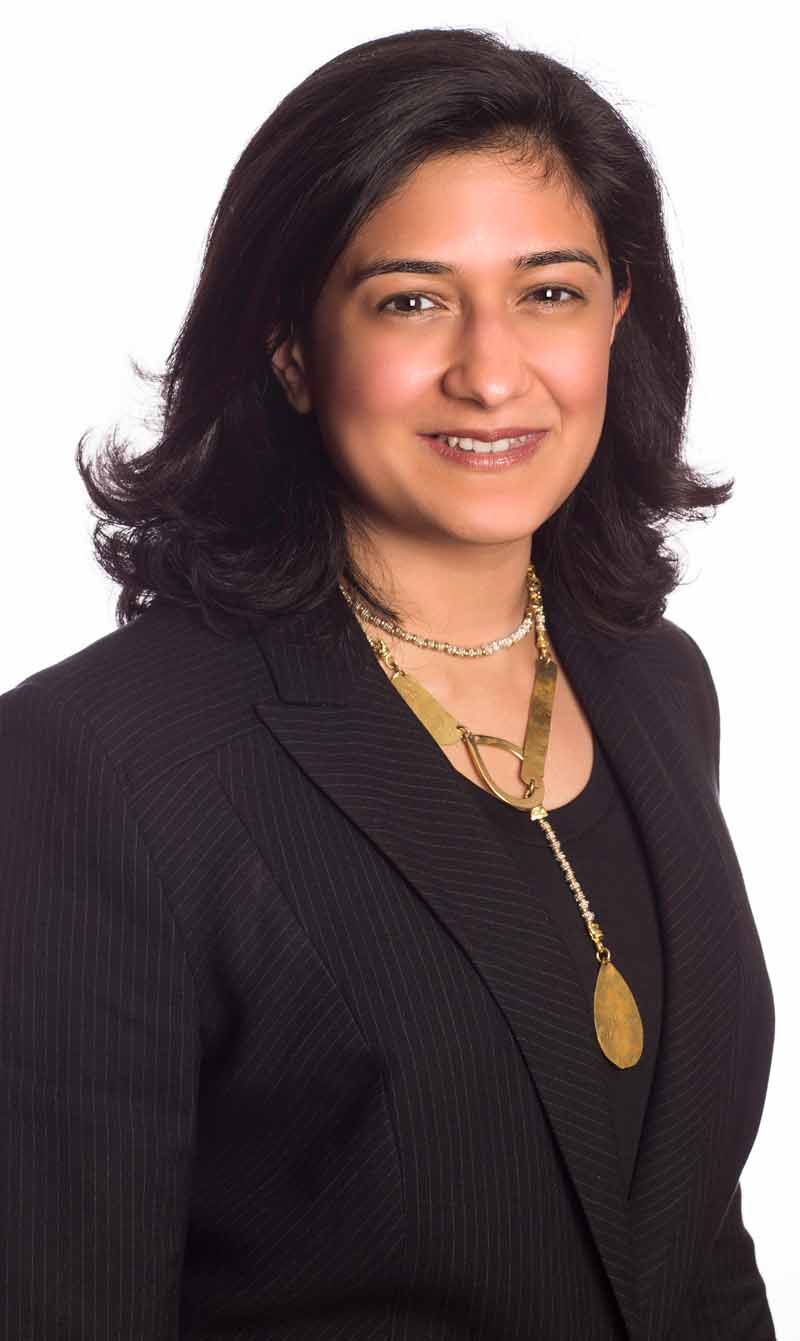Developing social enterprises
Though profit is the driving force that keeps businesses running, social enterprises focus on more than just financial profit and striking this balance is tricky business. Various issues on social enterprise development in universities were discussed at the recent AKEPT–WIEF Social Enterprise Forum on 22-23 Oct 2018 in ISTAC, Kuala Lumpur.
What sets social enterprises apart from other businesses is that they are impact driven and focus on solving social issues. It’s a noble cause and universities should be one of the leading institutions to harbor such activities. To encourage social enterprise development in universities, the AKEPT – WIEF Social Enterprise Forum gathered 35 speakers and close to 300 participants from 14 countries to discuss their insights, experiences and way forward in this field.
The forum was an initiative organised by WIEF, the Ministry of Education Malaysia (MOE) and Higher Education Leadership Academy AKEPT in collaboration with International Islamic University Malaysia (IIUM). The two-day forum took place on 22-23 Oct 2018 at ISTAC in Kuala Lumpur.
The speakers at the five plenary sessions provided the participants with insights on how to unleash the potential of social enterprise development in universities, how governments can play a role, some lessons from success stories, how to commercialise the businesses and a few experiences from abroad.
Educating society
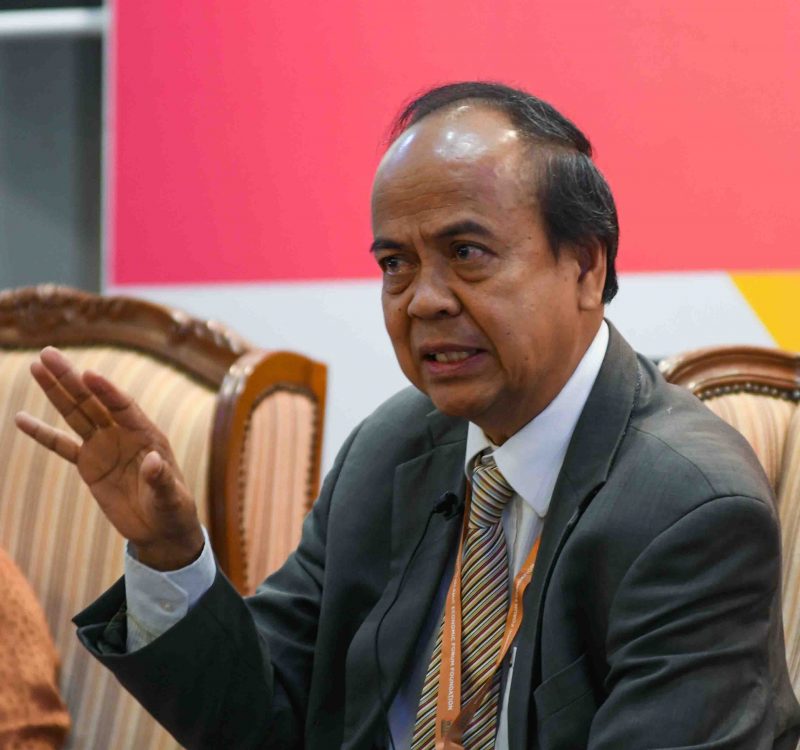
Life happens by accident but it’s up to education institutions to lead people’s lives towards a better tomorrow. Professor Dr Raha Abdul Rahim, director of IPT Excellence Planning Division, Ministry of Education Malaysia represented Datuk Professor Dr Rohana Yosuf, director of Higher Education Leadership Academy (AKEPT) in Malaysia during this session. She pointed out that universities had an important role to play by instilling the benefits of social enterprises among students in their teaching. Syed Mahmudul Huq, Chairman of the Bangladesh Shrimp and Fish Foundation, believed there was a mismatch between universities and life of students and this was common to many developing countries.
The solution to this was to assist students in identifying their problems in their communities and help them come up with practical solutions to improve their situation and help in economic contribution. Professor Dr Hafid Abbas, Professor of Education at the Jakarta State University, noted that to develop university excellence there needed to be a training centre to provide technological training among other required skills to assist towards this development. The speakers concurred that universities should first set the example of being a social enterprise itself and help to bridge this mismatch.
Government support
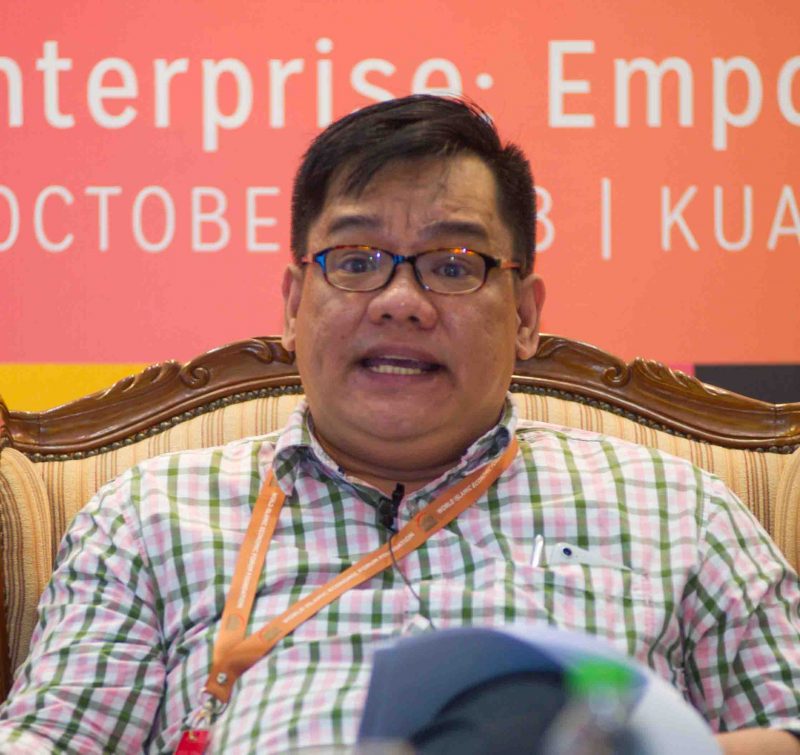
Governments on the other hand had another role to play. Ashran Dato’ Ghazi, CEO of the Malaysian Global Innovation & Creativity Centre (MaGIC), mentioned how their accreditation programme was nurturing social entrepreneurs with the help of the government. ‘We’ve reached 8,000 individuals and managed to get private money and funds into their social enterprises,’ he said. He labelled these businesses as Impact Driven Enterprises (IDE) so they were not restricted by certain definitions.
Gomer Padong, director of training, development cooperation and advocacy from the Philippines Social Enterprise Network, emphasised the need for governments to play a role in the sub sectors and help to mainstream social entrepreneurship in the education system. The Philippine Social Enterprise Network (PhilSEN) is dedicated to the promotion of the social and community enterprises that enable the poor, disables and marginalised to become key economic players in agriculture, technology and other industries.
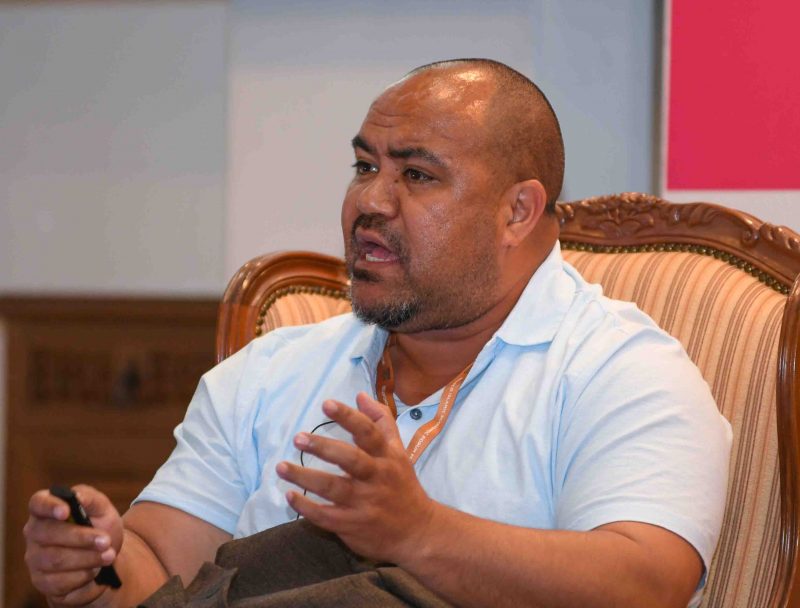
Ina Michael, director of strategy and business investment from the Cook Islands Development Agency of New Zealand (CIDANZ), was funded and supported by the government of New Zealand to help the Cook Island community in New Zealand. They created lifelong learning activities for the community, developed tourism and a community innovation hub. ‘With government support, we’ve gone from zero to empowering 50 families and startups that contribute to the economy,’ he said.
Success stories
Some of the other success stories shared were by student entrepreneurs, Caroline Fong, founder of CoffeeZone Malaysia, Tengku Ahmad Syamil, CEO and co-founder of Skolafund and Dr Izza Arsyika Rahim, secretary of Hospitals Beyond Boundaries.
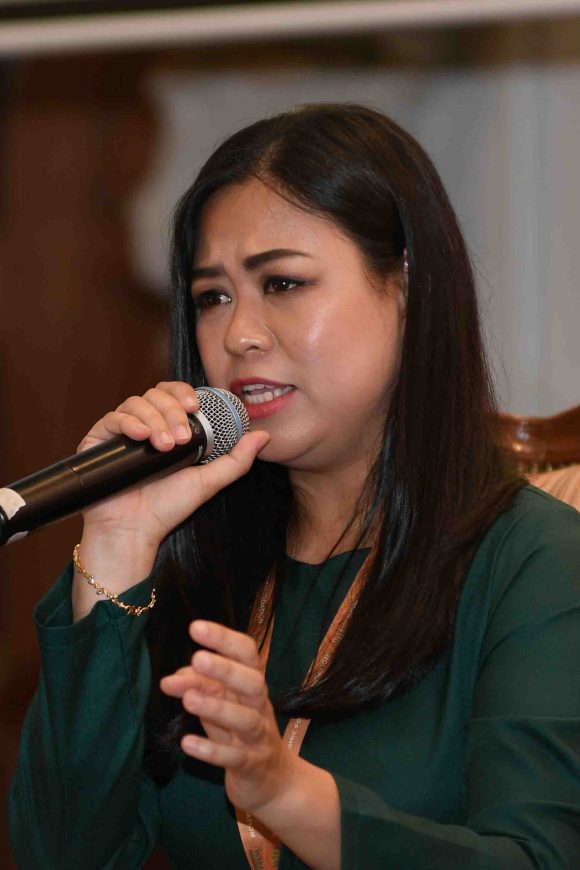
Coffeezone was initiated on a demand for premium coffee at affordable price but what was unique, besides their coffee, was that they hired disabled people and single mothers to work. They offer their coffee through cafés, catering and coffee trucks to clients like Toyota, Maybank and others.
20-year-old Tengku Syamil founded a web platform for students, research and community projects to make higher education affordable to those who qualify. His enterprise journey started when he was a university student and it wasn’t easy but according to him, students can try, fail and try again because it’s less risky. ‘In university, it’s the best time to start,’ he said.
Dr Izza also started as a medical student dedicated to spreading medical efforts to rural areas. The HBB’s first project kick-started in Phnom Penh, in Cambodia in 2012. They didn’t waste time even when they didn’t have money and started a fund raising campaign to help them build a sufficient hospital. Their certified medical doctors now also teach other students of any background how to perform tasks such as monitoring blood sugar levels and others.
Commercialising social enterprises
In Indonesia, Jamil Abbas, member of the board of trustees of the Rahmania Foundation, explained that the Rahmania Foundation provided commercial financing and Islamic financial assistance, such as zakat, infaq sadaqah and waqf, for the neediest children in Indonesia. ‘Unfortunately, society needs more,’ he said. Jamil established other social enterprises to help people make money and stay with their families. He’s currently working on a solution to help solve the garbage problem in the towns and at the same time help the differently-abled people make a living. ‘A double social enterprise can be more impactful,’ he said.
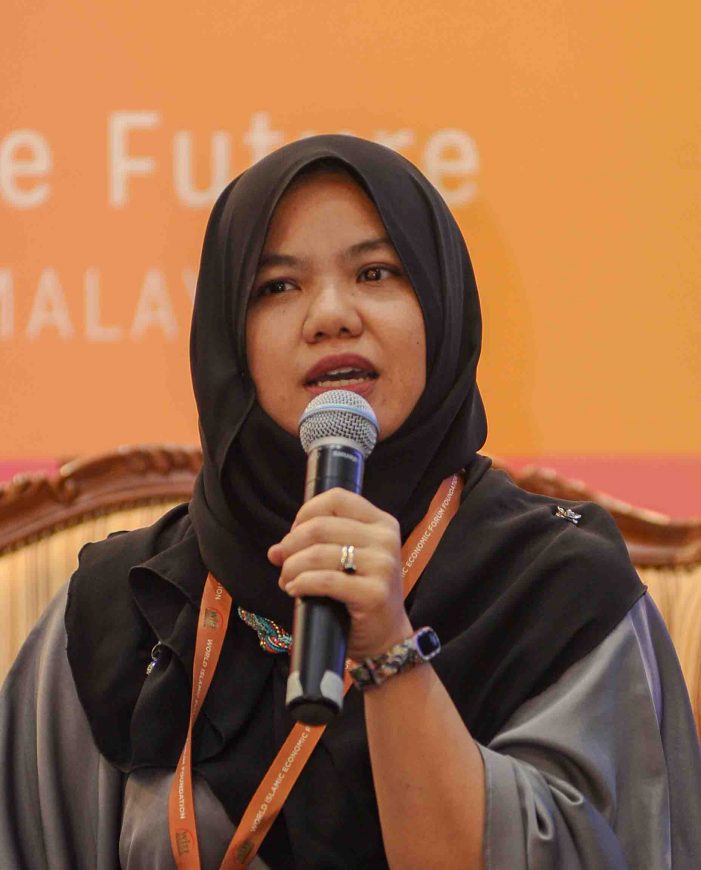
Nurfarini Daing, co-founder and CEO of the Youth Trust Foundation in Malaysia, dedicated her time towards supporting youth projects that contribute to nation building. She pointed out that many social enterprise companies faced a social mission drift along the way because they were not ready. ‘It’s important that we are aware of the balance between our social impact and the business Return of Investment (ROI). But, there’s no real formula of having a balance,’ she said.
Jerryson Abraham G. Doss, co-founder of Viva Starfish Sdn Bhd, Malaysia, also helped millions of people in need of education. He believed that in order for social work to have an impact it must be continuous. He used to sell bottles of water to earn money to help children in their education. He also mentioned that success comes with knowing how to manage your finances and the passion you have about your business. ‘Choose something that is very close to your heart,’ he added.
Experiences from Abroad
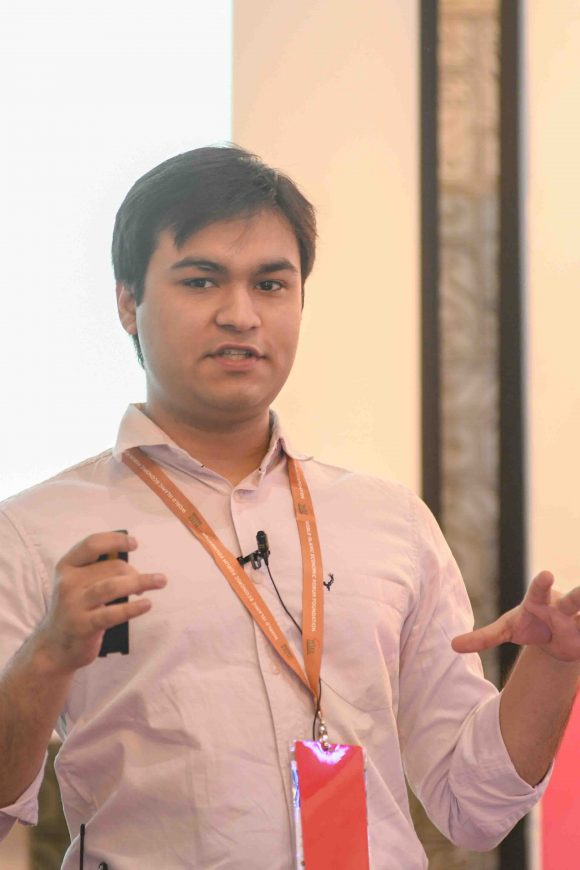
Talib Syed Karim, President of the Institute of Business Management in Pakistan, established a few universities in the late 90s in the populated area of Karachi, India, a place where no one wanted to go, to contribute to the community. Within five years his foundation had taken 5,000 students. His purpose was to bridge the gap between the different classes in India. Talib is now working on an incubation centre to create jobs creators not job seekers. ‘Pakistan needs people who can do that,’ he said.
20-year-old Anand Chowdhary, one of the youngest entrepreneurs, founded Oswald Labs in 2016 and built a web tool to help people with Dyslexia to read. ‘Someone told me how powerful this is and that she used it for her kids and students,’ he said. So, he decided to drop out of school and work on it full time. He offers it free of charge to the public but charges big companies who can afford it.
Anand compared the Netherlands, where he currently lives and studies, to India, his home. ‘The EU has its universal privacy laws and health care but the challenges in India are different. We leaped to years of fintech to paper money to mobile, these ground innovations do matter and we are at a very good start,’ he said.
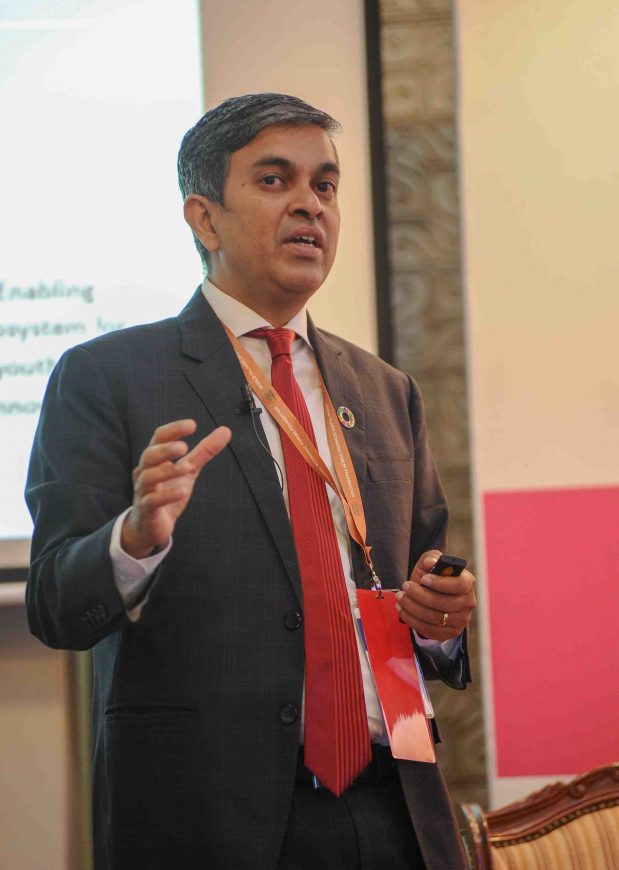
Sharon Feng, managing director of Code.Game in China, educated kids how to code from a very young age to encourage the connection between coding and technology. Code.Game also trained teachers and in 2019, they will be launching a global coding competition in their annual conference in Silicon Valley.
Royston Braganza, CEO of Grameen Capital India Limited, listed pillars that young entrepreneurs should have which were education, innovation, the social ecosystem, policy and institutional framework and technology. He told participants that they should integrate work and their courses to look at SDGs because the need was there. ‘There has to be a positive contribution to the economy and it should benefit all stakeholders,’ he concluded.
___________________
On day two of the AKEPT–WIEF Social Enterprise Forum, masterclass sessions were held on different social enterprise topics. Read more in the summaries of masterclasses on Crowdfunding and Other Financial Tools for Social Enterprise, Social Enterprise and Community-led Development and Breaking the Glass Ceiling: Women as Social Entrepreneurs.
